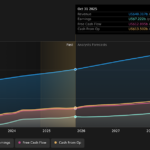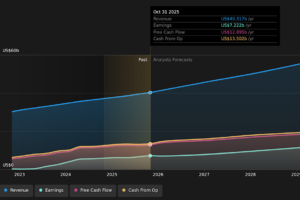
Dear Moneyist,
I have a question about the stimulus check. Why is the stimulus check based on 2019 tax returns? I earned over $100,000 in 2019 and now I am retired and earned far less than $100,000 this year. Why can’t I qualify for a stimulus check?
Do you think this is fair given that I have not been working as much in 2020? I also know people who made over $100,000 in 2019, but can’t get a stimulus because of their 2019 tax return, even though they earned less this year. Thank you for taking the time to read this.
Candace
Dear Candace,
Is the stimulus package fair? Is the COVID-19 pandemic fair? Has 2020 been fair to families and elderly relatives who have been isolated? Is it fair that businesses and restaurants have closed, and office blocks have emptied out? Is it fair that some people lived, while others died? Is it fair for 12 million people to be unemployed in a year that has wrought so much turmoil? Is it fair that we were born in Europe or the U.S. or Syria or Liberia? Life on earth is not based on fairness.
“ ‘Life on earth is not based on fairness.’ ”
The government had to find a way to distribute the $2.2 trillion CARES Act to help people who were living paycheck to paycheck, losing their homes, or struggling to put food on the table. It gave a good first pass at being fair. Using 2019 tax returns to assess whether people qualified or not was the fastest and most efficient strategy. The stimulus checks are an advance on a 2020 tax credit. But because millions of people had not filed their returns in March, the IRS used their 2019 returns in lieu of 2020.
Was it imperfect? Of course it was imperfect. There was no and is no perfect solution. Adding to the complexity: If people did not file their 2019 tax returns by last March, the government used their 2018 returns as a proxy as a guide in order to determine their earnings. People making over $99,000 per year, and married couples making above $198,000 per year did not receive a payment. Some folks who lost their job this year, but who earned far more last year, did not receive a stimulus.
And this time around? Individuals earning up to $87,000 per year, and couples earning up to $174,000 per year will receive an economic-stimulus payment. Individuals who made $75,000 in 2019 will receive the maximum amount of $600, and couples who earned $150,000 last year will get $1,200 as part of this second $900 billion stimulus package. Is it fair that people are getting half of what they received as part of the CARES Act in March? It is neither fair or unfair.
Bottom line: You will receive stimulus-check payments based on your 2020 returns, but you won’t receive them this year, and no one is saying that it will be easy for people who fall between the two tax returns. Some people filed their 2019 tax returns early, and because they earned more this year did not qualify for a stimulus payment. (This man wrote to me in April to say, ‘I was punished for being responsible. I filed my 2019 taxes early — and received almost no stimulus check.”)
You can email The Moneyist with any financial and ethical questions at [email protected]. Want to read more?Follow Quentin Fottrell on Twitterand read more of his columns here
Take heart in this: There has been progress on vaccines. Assuming they work, they could eventually bring people back to their place of work. BioNTech SE BNTX, -3.10% and Pfizer PFE, -0.45% said a final analysis of their vaccine candidate showed 95% efficacy, and rolled out their first deliveries on Monday. Meanwhile, Moderna MRNA, -5.33% said its own candidate was 94.5% effective. Vaccinations are rolling out for the second vaccine in the U.S. this week.
A vaccine candidate from AstraZeneca AZN, -0.51% and the University of Oxford is safe and effective and showed an average efficacy of 70% in a pooled analysis of interim data, according to a peer-reviewed study published last week. Efficacy was 62% for trial participants who received two full doses of the experimental vaccine, but increased to 90% among a subgroup of volunteers who received a half dose, then a full dose, according to data published in The Lancet.
Access to a vaccine reveals a whole new set of rules on fairness.Would you like to sign up to an email alert when a new Moneyist column has been published? If so, click on this link.
You agree that your emailed letter to the Moneyist will be published here anonymously. It may be edited for style and space.
Hello there, MarketWatchers. Check out the Moneyist private Facebook FB, -0.26% group where we look for answers to life’s thorniest money issues. Readers share all sorts of dilemmas.












